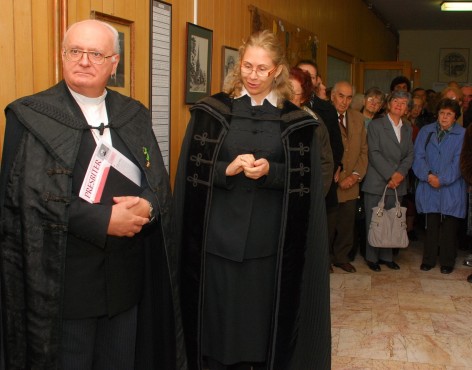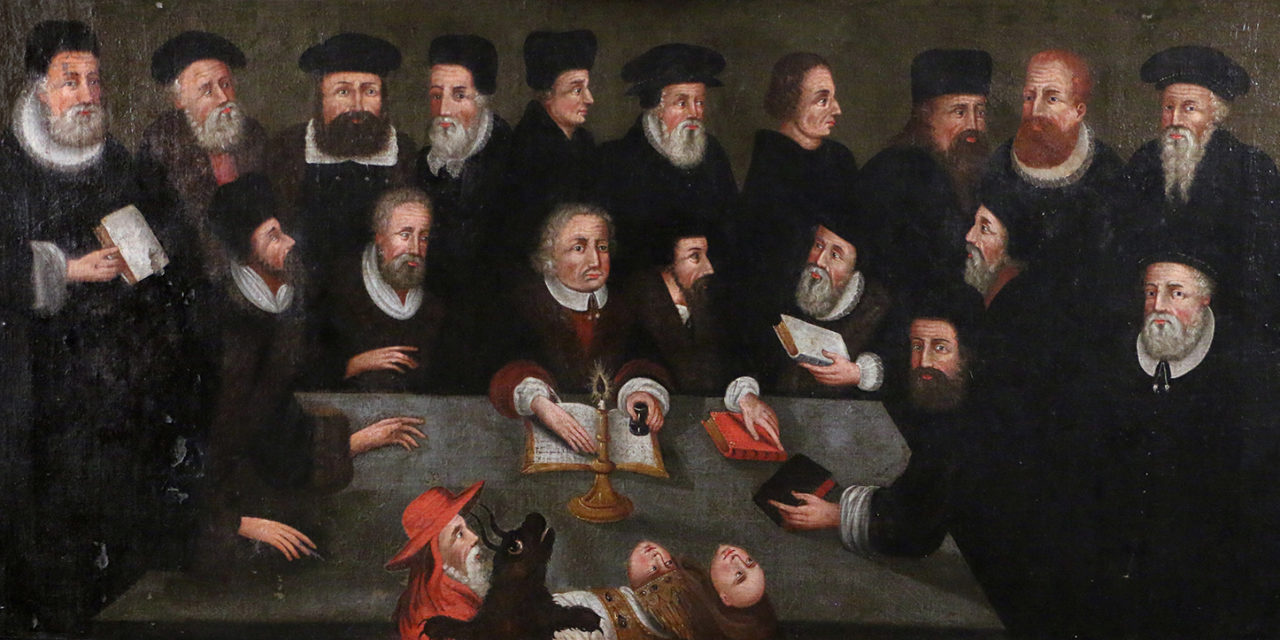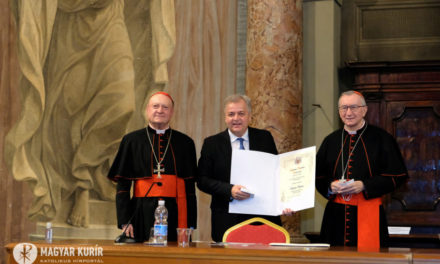The light of the Reformation spread over the entire globe! On today's 504th anniversary, instead of glorifying hymns, let us shine a light on the specifics of the heavenly light, which has been pouring into the world since October 31, 1517. only in a Christ-like ray of light that flows gently, in the healing, personal light of Him who is more perfect than all solar light, Who says: "I am the light of the world: whoever follows me will not walk in darkness, but will have the light of life" (John 8:12). - writes Dr. Lajos Békefy in his memorial on the Felvidek.hu website
God's world-fertilizing closeness shined in Luther's 95 theorems, shining in globe-encircling light bends and heavenly abundance. In our world panorama, we can only glimpse a few names who concentratedly embraced lux mundi, lux vitae, the only true light of the world and life. Jesus.
In addition to the huge materials of the worldwide-known English Encyclopædia Britannica or the worldwide-used German RGG (Religion in History and the Present), there are exciting smaller figures about the amazing overall effect that Protestantism has had on world history. There is a library of literature on this.

Dr. Lajos Békefy, pastor of Budapest
During my thanksgiving prayers for the Reformation, I take the gems of my reference book next to the Bible and leaf through them: Joachim Staedtke's Zurich sourcebook on the Reformation, W. Niesel's pamphlets, the 12 volumes of Károly Barth's ecclesiastical dogmatics, Max Weber's and Ernst Troeltsch's contemporary sociological analyzes of religion, the 1998 study volume on the future of Reformed theology , one of whose editors is the reformed pneumatologist of our time, M. Welker from Heidelberg. And two mini-works: the testimony of the Catholic Brazilian Leonardo Boff about the values of the Reformation, and the Debrecen dr. Gaál Botond The essence of the reformation c. manual. Together with them, I deeply bow my head and soul before the Lord and God of vindication and free grace, for the world and man-renewing faith received in Jesus Christ...
And I ask…
Would there have been a new European era of mathematics without the Calvinist philosopher, Petrus Ramus, who was martyred together with the French Huguenot admiral, Coligny, in the terrible Bartholomew massacre in Paris in 1572? Could the invention and development of the logarithmic calculus have been possible without the Swiss Calvinist Jot Bürgi and the Scottish John Napier? Who would have known the wave nature of light without the Dutch Calvinist scientist Christian Huygens? Or who could have utilized the laws of flight without Daniel Bernoulli from Basel, who described the compressive effects of air pressure in 1738?
And without the Swiss mathematician Leonhard Euler, where would mechanics, optics, and astronomy be today? And where would we be without the Dutch Calvinists Janssen, Swammersdam and Lippershey who discovered and further developed the microscope and the telescope? So many names, which are almost completely unknown, even though in them and in their creations our Creator God discovered the laws written into existence.
Those closer to us are better known
János Ámos Comenius, who was elected bishop in the communities of the Czech brothers with the light of the Reformation, continued to pour the heavenly and scientific light on Hungarian students in Patak, tirelessly sharing the treasures of education and linguistics in a circle of a thousand kilometers. Kálvin carried his national language style feats in his performances from Prague to Patak, from Herborn to Poland.
Fantastic performances were created in the Baroque era in the spirit of Protestant sober rapture and simplicity, during the decades of Bach's cantorships in Leipzig, giving glory to God for everything.
Would there have been an intimacies of painting without the Dutch classicist Calvinism, when interiors, family scenes, fruit and flower compositions, and ordinary life situations were put on canvas with the brush of Jan Vermeer or Rembrandt and many other Dutch artists? Or could the feats of Calvinist architecture have been born from Paris to the great German Huguenot-designed cities, headed by Berlin, Hanau, Kassel, Karlsruhe, Erlangen, Mannheim?
Would there have been a reform and flourishing of jurisprudence and political science without the Dutchman Hugo Grotius, the first developer of international law? Or the creation of public law by the German Calvinist Johannes Althusius Politics. without his work? Could Oliver Cromwell's state-shaping zeal have been born without the Puritan Calvinists?
Would there have been a British Constitution drafted as a wedge of constitutional law in 1655? And would the world have moved in the direction of democracy without Calvin's shared power and the principles that created the doctrine of equality between the church and the world? Could refugee law and civil liberties have developed without the Geneva Conventions based on Calvin's tradition? And without the Puritans who shipped federal theology all the way to America, would the USA be today?
Without the Mayflower Convention concluded in 1620, which was signed by 41 Puritan politicians, and the federal and at the same time theocratic, God-serving character of politics would not be left to later ages?
Without Kant and Hegel, could philosophy have reached the full extent of its heavenly reflexive and earthly moral regulating power? From the evangelical roots of Albert Schweitzer or Dag Hammarskjöld, the Christian orientation of the whole of Africa and international diplomacy is unthinkable.
Endless Protestant creations shine the light of Christ
A short walk in the College of Debrecen is all it takes to come face to face with the multitude of ideals of the Hungarian Calvinist creative spirit that shaped the nation, educated, and cultivated science for centuries. Shall I list? Albert Szenczi Molnár, Mihály Fazekas, Mihály Vitéz Csokonai, Ferenc Kazinczy, Ferenc Kölcsey, János Arany, Mór Jókai, Sándor Petőfi, Mihály Tompa, Zsigmond Móricz, Endre Ady, Lőrinc Szabó, László Németh, Pál Gulyás, László Nagy, Magda Szabó. Or the greats of Transylvania? Zsigmond Kemény, Dezső Szabó, Lajos Áprily, András Sütő, Sándor Kányádi, Zoltán Jékely, Albert Wass. The Bolyas. And the Calvinist faith of the great princes Bethlen, Bocskai and Báthori. Or as evangelicals Dániel Berzsenyi and Sándor Reményik...
This is the end of our fragmentary account and review of our spiritual wars. But it is not the line of those who enriched our nation and the peoples of the wider world with their Protestant faith and science, art, talent, two hands and diligence.
Blessed are the sowers, whose hand and spirit follow the name of Christ still shines today on the horizon of the homeland and the globe and in billions of human hearts...
Indeed: Soli Deo Gloria.
Source and image and full article: velvidek.ma













